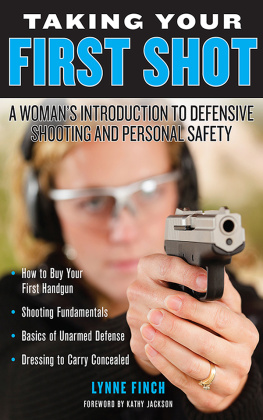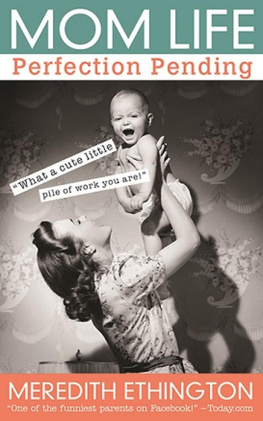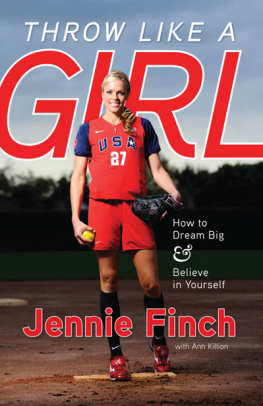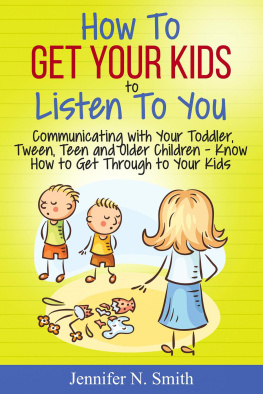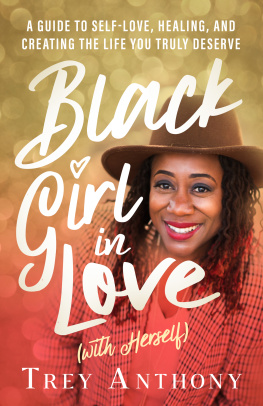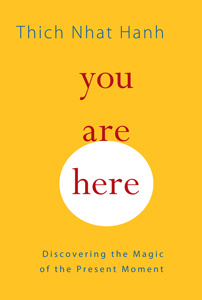At some point in nearly every marriage, a wife finds herself asking, What the @#!% is wrong with my husband?! In David Finchs case, this turns out to be an apt question. Five years after he married Kristen, the love of his life, they learn that he has Asperger syndrome. The diagnosis explains Davids ever-growing list of quirks and compulsions, his lifelong propensity to quack and otherwise melt down in social exchanges, and his clinical-strength inflexibility. But it doesnt make him any easier to live with.
Determined to change, David sets out to understand Asperger syndrome and learn to be a better husbandno easy task for a guy whose inability to express himself rivals his two-year-old daughters, who thinks his responsibility for laundry extends no further than throwing things in (or at) the hamper, and whose autism-spectrum condition makes seeing his wifes point of view a near impossibility.
Nevertheless, David devotes himself to improving his marriage with an endearing yet hilarious zeal that involves excessive note-taking, performance reviews, and most of all, the Journal of Best Practices: a collection of hundreds of maxims and hard-won epiphanies that result from self-reflection both comic and painful. They include Dont change the radio station when shes singing along, Apologies do not count when you shout them, and Be her friend, first and always. Guided by the Journal of Best Practices, David transforms himself over the course of two years from the worlds most trying husband to the husband who tries the hardest, the husband hed always meant to be.
Filled with humor and surprising wisdom, The Journal of Best Practices is a candid story of ruthless self-improvement, a unique window into living with an autism-spectrum condition, and proof that a true heart can conquer all.
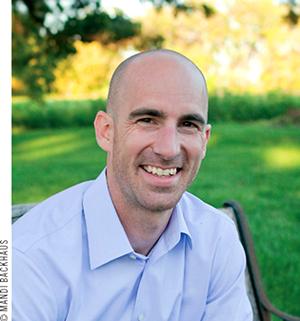
David Finch grew up on a farm in northern Illinois and attended the University of Miami, where he studied music engineering technology. In 2008, he was diagnosed with Asperger syndrome. His essay Somewhere Inside, a Path to Empathy appeared in The New York Times and became the basis for this book. David lives in northern Illinois with his wife and their two children.
MEET THE AUTHORS, WATCH VIDEOS AND MORE AT
SimonandSchuster.com
THE SOURCE FOR READING GROUPS
Thank you for purchasing this Scribner eBook.
Sign up for our newsletter and receive special offers, access to bonus content, and info on the latest new releases and other great eBooks from Scribner and Simon & Schuster.

or visit us online to sign up at
eBookNews.SimonandSchuster.com
We hope you enjoyed reading this Scribner eBook.
Sign up for our newsletter and receive special offers, access to bonus content, and info on the latest new releases and other great eBooks from Scribner and Simon & Schuster.

or visit us online to sign up at
eBookNews.SimonandSchuster.com



A Division of Simon & Schuster, Inc.
1230 Avenue of the Americas
New York, NY 10020
www.SimonandSchuster.com
Copyright 2012 by David Finch
Authors Note: This is a memoir. I have been faithful to my recollections. Certain events and dialogue have been adapted to suit the narrative. The names and identifying characteristics of some individuals have been changed.
All rights reserved, including the right to reproduce this book or portions thereof in any form whatsoever. For information address Scribner Subsidiary Rights Department, 1230 Avenue of the Americas, New York, NY 10020.
First Scribner hardcover edition January 2012
SCRIBNER and design are registered trademarks of The Gale Group, Inc., used under license by Simon & Schuster, Inc., the publisher of this work.
The Simon & Schuster Speakers Bureau can bring authors to your live event. For more information or to book an event contact the Simon & Schuster Speakers Bureau at 1-866-248-3049 or visit our website at www.simonspeakers.com.
Designed by Carla Jayne Jones
Jacket Design and Illustration by Rex Bonomelli
Library of Congress Control Number: 2011013986
ISBN 978-1-4391-8971-9 (print)
ISBN 978-1-4391-8975-7 (eBook)
To Kristen, Emily, and Parker
The only thing to know is how to use your neuroses.
Arthur Adamov
Contents
Introduction
Do all that you can to be worthy of her love.
I was thirty years old and had been married five years when I learned that I have Asperger syndrome, a relatively mild form of autism. My wife, Kristen, a speech therapist and autism expert, brought it to my attention one evening after harboring suspicions for years.
Receiving such a diagnosis as an adult might seem shocking and unsettling. It wasnt. Eye-opening, yes. Life-changing, yes. But not distressing in the least. Strangely, it was rather empowering to discover that I had this particular condition. In fact, the diagnosis ultimately changed my life for the better.
I received the news the day before my niece was born. I remember this not because Im a wonderful uncle but because she was born on March 14, 2008, which is well-known among my fellow nerds in the math and science communities as Pi Day because pi, the ratio of a circles circumference to its diameter, is equal to 3.14. Also 3 + 14 + 2 + 0 + 8 totals 27, which is divisible by 3, and I love numbers that are divisible by 3, particularly numbers whose digits sum to 27, of which 3 is the cube root. (Are you starting to see why Kristen had her suspicions?)
The day had been chaotic but really nothing out of the ordinary for two young working parents. Kristen was in the kitchen, trying to put it back in some kind of order, and I was upstairs saying good night to our kids. After walking with our ten-month-old son, Parker, in little circles around his dark room and whispering the lyrics of an Eric Clapton song until he fell asleep, I cuddled with our daughter, Emily, until her restless two-year-old squirming subsided and her breathing slowed and deepened. I crept out, whispering I love you, the words all but dissolving into the whir of her electric fan.
As I descended into the warm amber glow that bathed the first floor of our house, I could hear the hum of the dishwasher in the kitchen and the soft clunk of toys being put away in the playroom. Something was up; the house was never so tranquil right after the kids went to bed. Usually, the television was on, the kitchen was a disaster, and books and toys were scattered everywhere. I expected to find Kristen in her usual spot: sitting on the couch among stacks of paper and thick binders, her laptop resting on her legs as she feverishly prepared for the next days work. But everything was different that night.
In the kitchen, my dinner was cooling on the clean counter, and I felt an unusual sense of peace as I prepared for my evening routine. At eight thirty each night, after the kids have been put to bed, I circle the first floor, counterclockwise, starting in the kitchen, where I check to see if the patio door is locked. Then its back to the kitchen, where I usually wander around in circles until Kristen asks me what Im doing.
Next page







